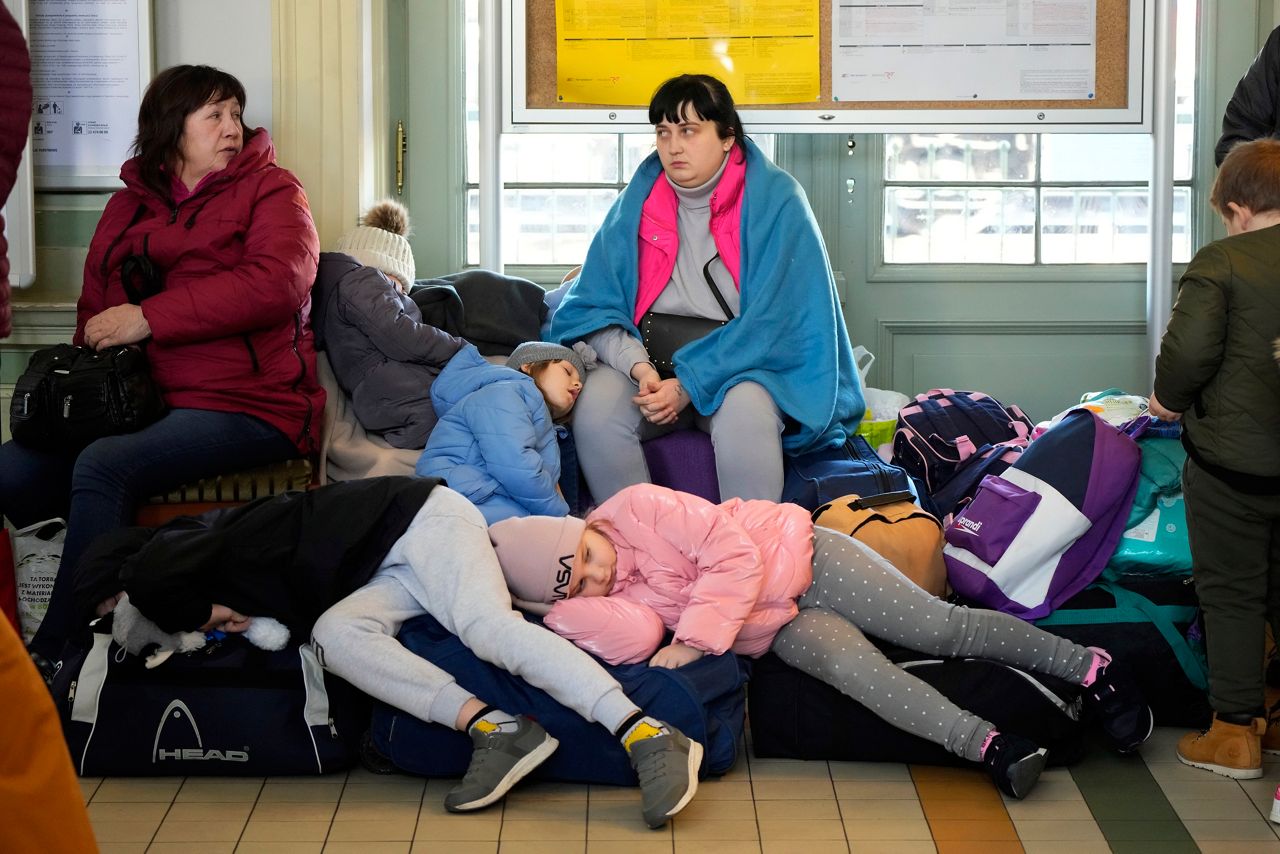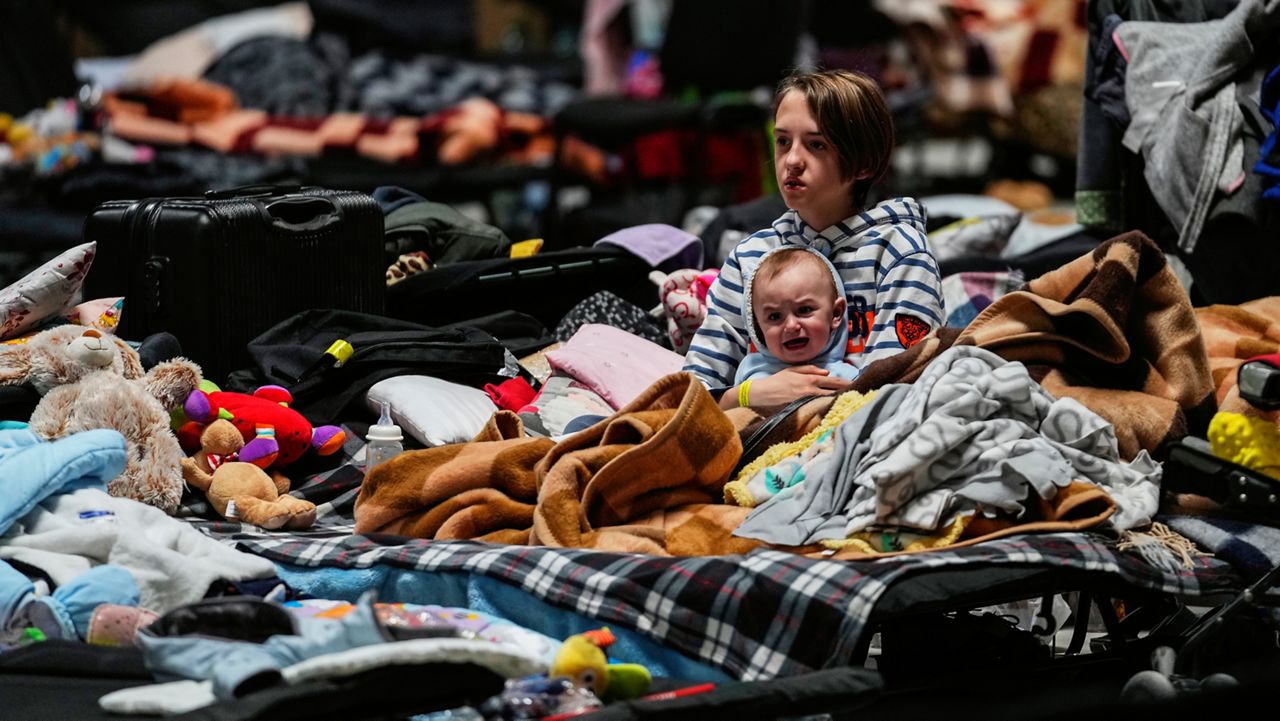When Mark learned on the night of Feb. 24 that Russian troops had begun their attack on his home country, he made a call from his home in New York to his parents in Ukraine to break the news that they wouldn’t make their flights to the United States.
They were scheduled to travel to Kyiv the very next day — Feb. 25 — to begin the journey.
“My brain told me no, it’s impossible,” he said of telling his parents to stay home.
“It was devastating to see my father’s face. I’m pretty sure it was his dream as well,” he told Spectrum News in an interview.
Mark — who asked not to go by his real name because he feels his parents are still in danger in central Ukraine — has been trying to reunite with his family since late 2017, after he became a U.S. citizen and applied for his parents to join him through the Lautenberg program. They were approved to travel this year, but now he doesn’t know when he’ll see them next.
As many as 18,000 Lautenberg applicants like Mark’s parents are on hold as American diplomatic operations and visa processing remain suspended in Kyiv, according to numbers provided by a senior administration official.
The program was created in 1990 to welcome Jews from the former Soviet Union, and it has since expanded to include Christians and people of other religious minorities who have close family in the U.S.
Typically, the U.S. admits a few thousand Ukrainian refugees each year, many of them joining family under the Lautenberg program, which is reauthorized annually by Congress and was again in March. Nearly 2,000 Ukrainians resettled in the United States in fiscal year 2020, for example, and another 4,451 the year before, according to State Department numbers.
Admissions have now dropped off since the Russian invasion began: The U.S. admitted just 12 Ukrainian refugees in March, down from more than 425 the month prior.

Mark’s parents, who are in their 80s, are vulnerable to Russian airstrikes while they wait, he said. He hears the sound of air-raid sirens in the background when he talks to them on the phone from their home.
“My mom cannot walk very well,” he said. “She told me, ‘Okay, I cannot physically get to shelter.’”
A State Department official told Spectrum News that they continue to process Lautenberg applications for people outside Ukraine through a satellite office in Moldova, even as Kyiv operations are on pause.
“We are exploring opportunities to increase access to case processing by expanding U.S. resettlement operations in Europe,” they added.
Meanwhile, Mark told Spectrum News he is afraid to risk helping his parents flee the country without a guarantee they’ll be able to soon join him in the U.S. safely. He says he’s gotten no response to about a dozen emails and calls to the International Organization for Migration, which finalizes travel for Lautenberg recipients.
President Joe Biden on Thursday also released details about his broader promise last month to welcome up to 100,000 Ukrainian refugees through an “expedited” process. More than five million people have fled Ukraine, according to the United Nations' latest estimate.
The new program will be limited to Ukrainians already outside their home country, and they will need a financial sponsor to get permission to travel to the U.S. They'll then be considered for humanitarian parole, which offers protection for up to two years.
Advocates have warned that using parole would lead to uncertainty for Ukrainian refugees.
“That would mean that people have no path to permanent status, and therefore no control over their futures, which is something they desperately need right now,” said Melanie Nezer, senior vice president for global affairs for HIAS, which was founded to aid Jewish refugees.
Advocates acknowledge the U.S. is unlikely to resettle as many as 100,000 Ukrainians, a number the White House even admits is a maximum, not a guarantee.
Before the plan to reunite his family was put on pause, Mark told Spectrum News that having his parents join him was going to be the final step in his journey to the U.S. It began when he moved to New York in 2011 with his wife and two young sons.
“It was my dream,” he said. “You want freedom. You want democracy.”
His parents have already given up their pension in Ukraine under the conditions of their move, and they had shipped their belongings to his home in preparation.
“It could be a couple of days, it could be a couple of years. But we don't have [a] couple of years,” he said.
Note: This story has been updated to reflect new details about the Biden administration's plan to welcome Ukrainian refugees.



